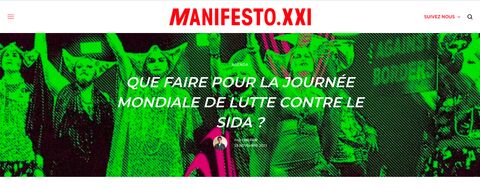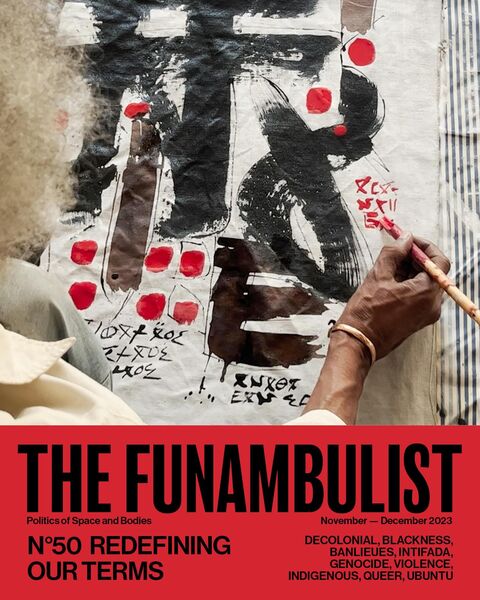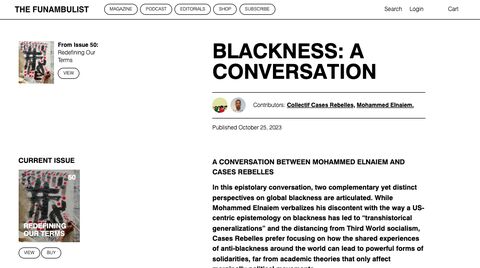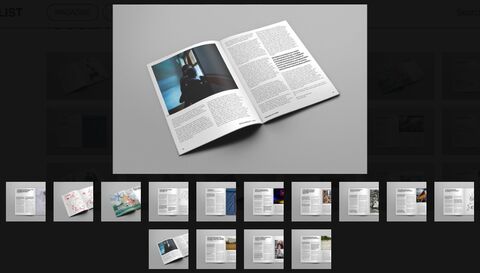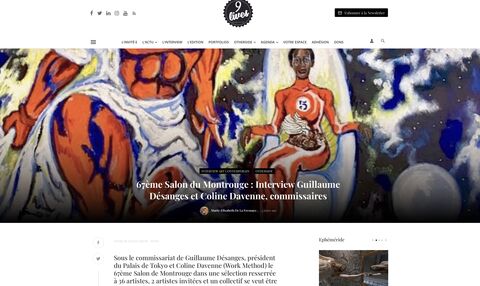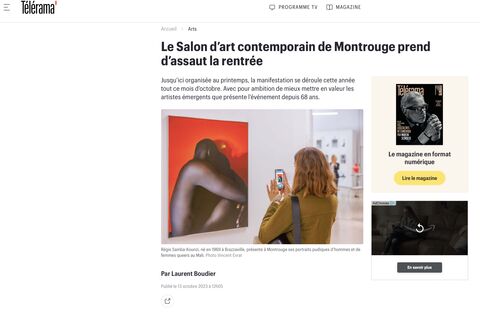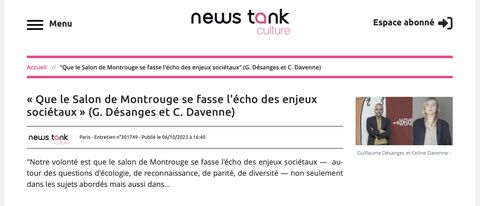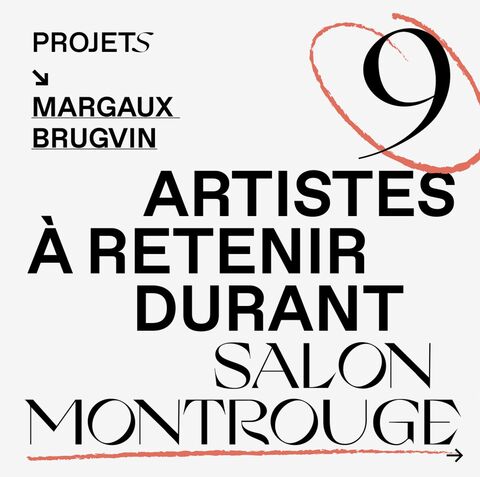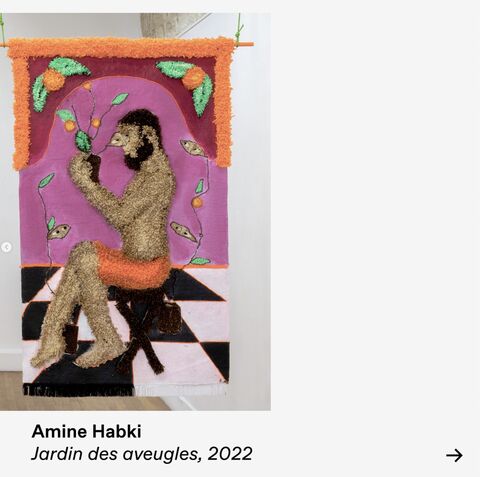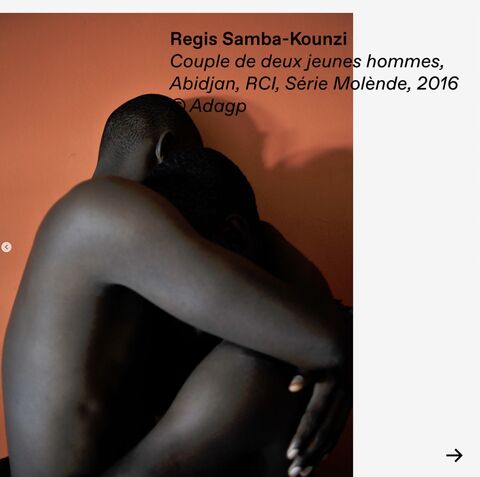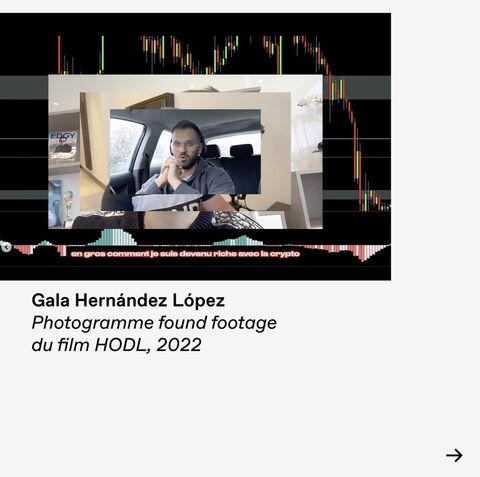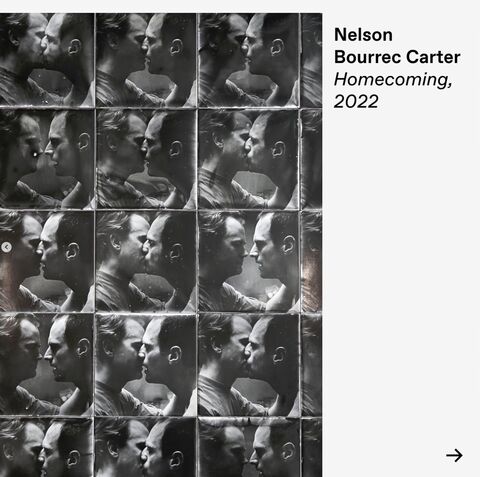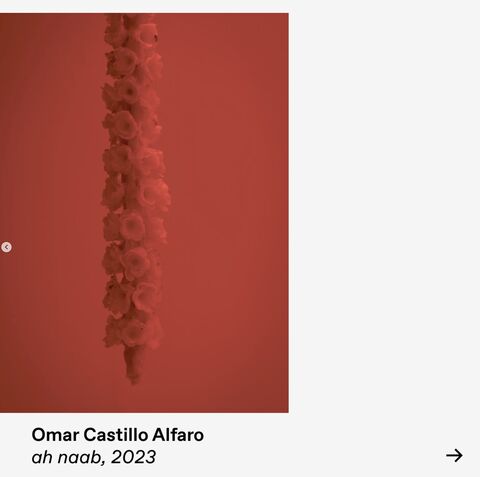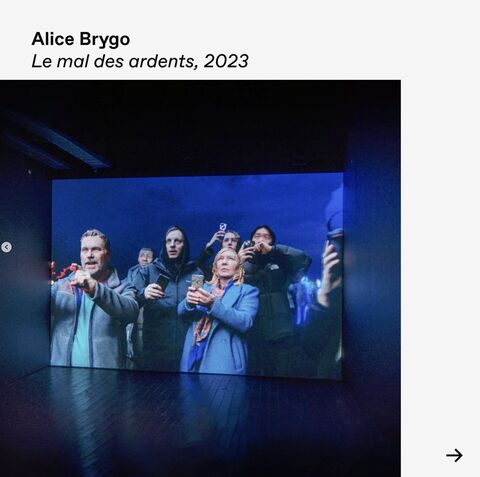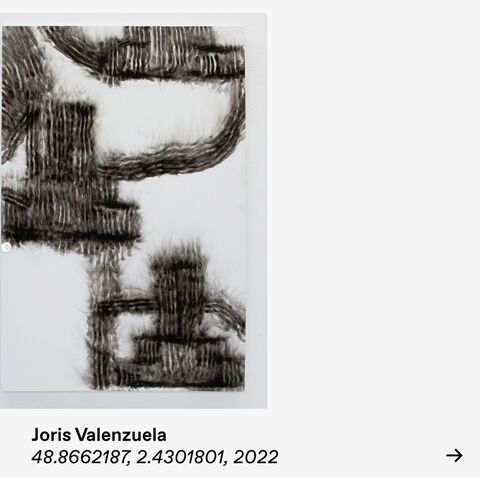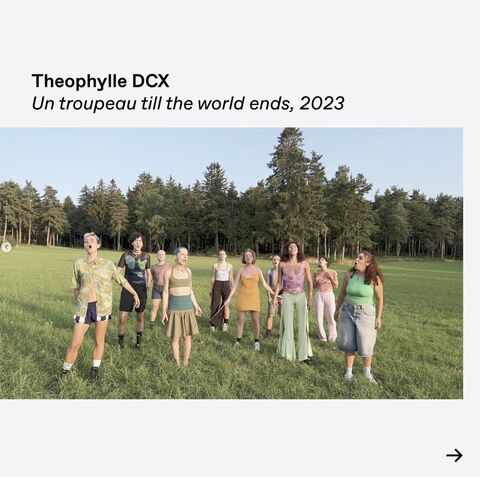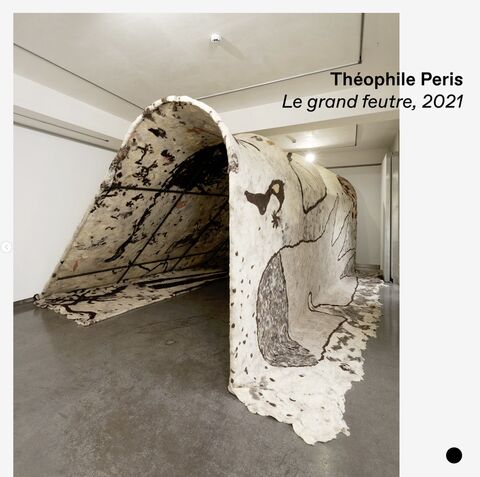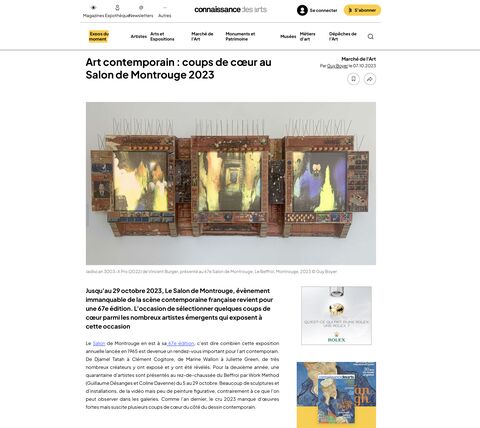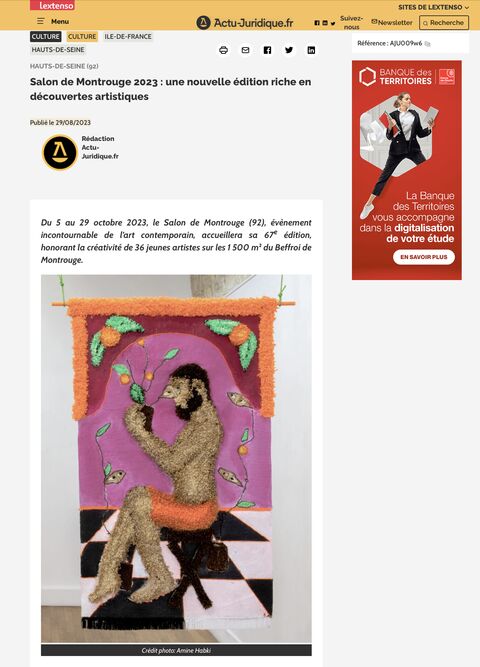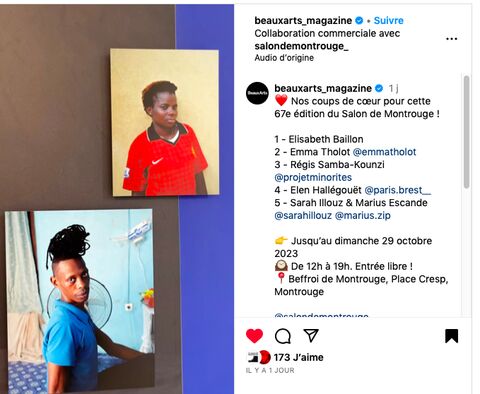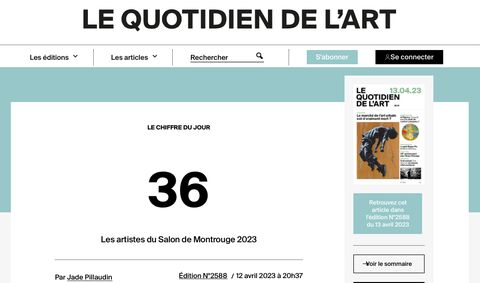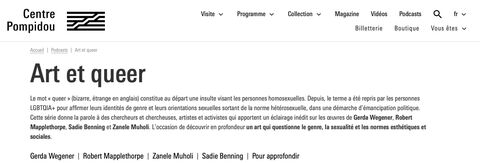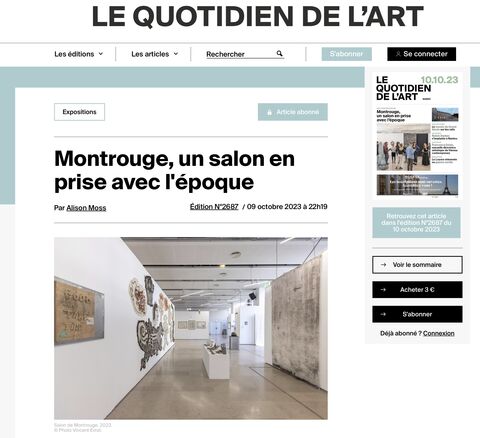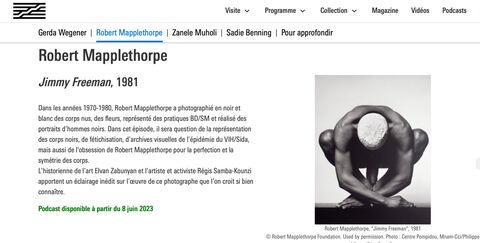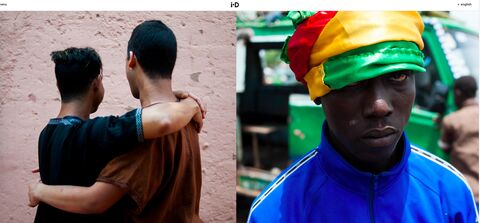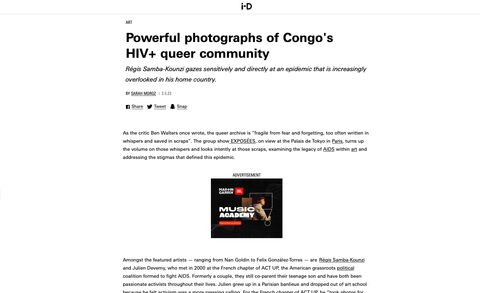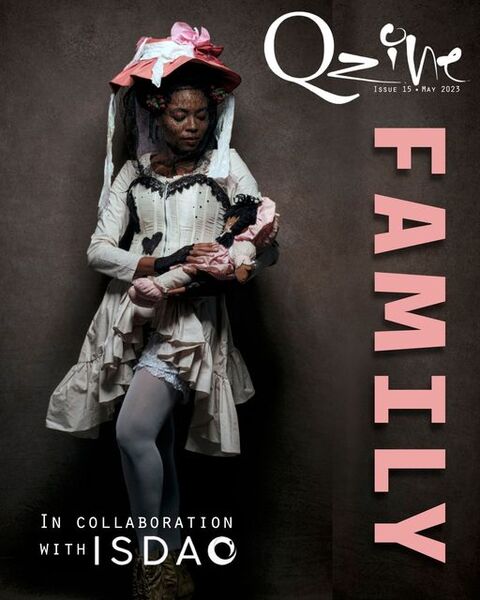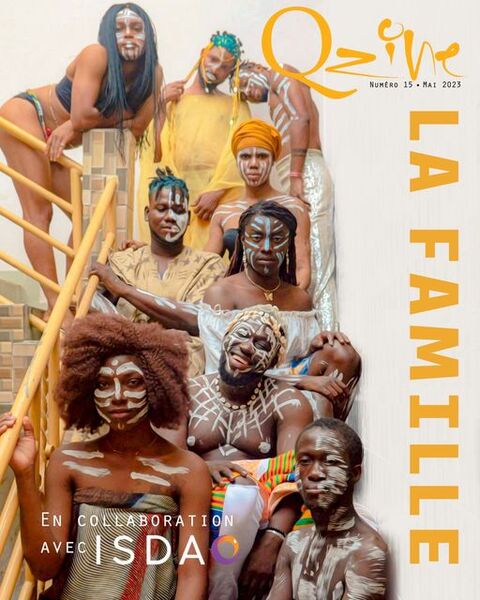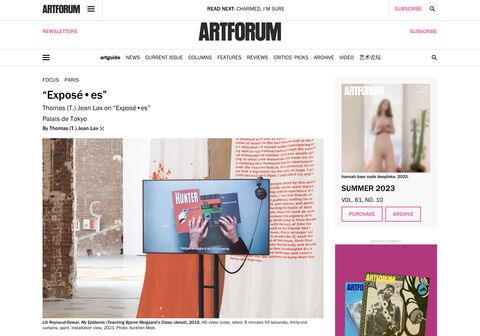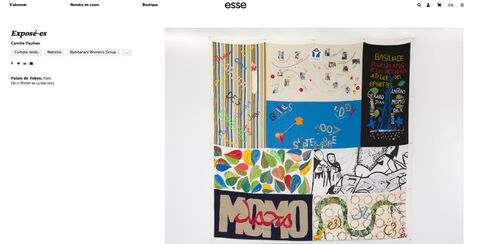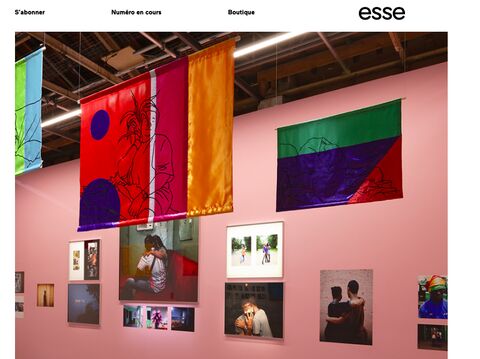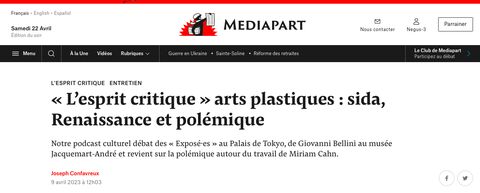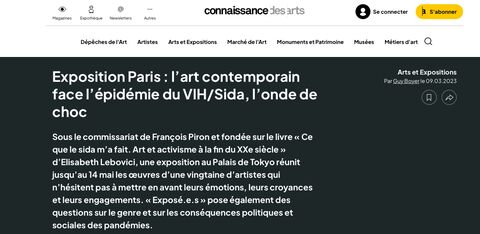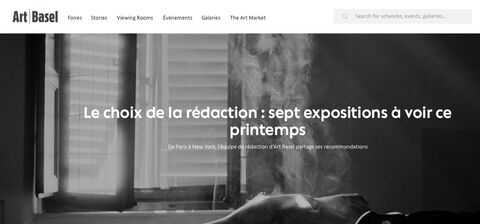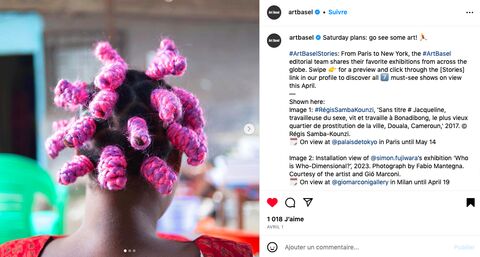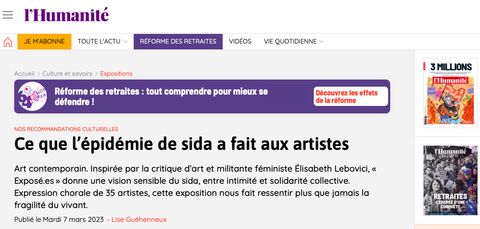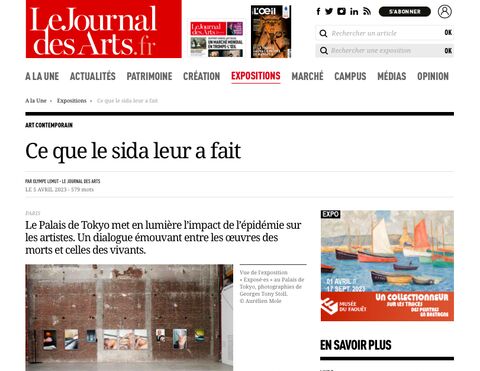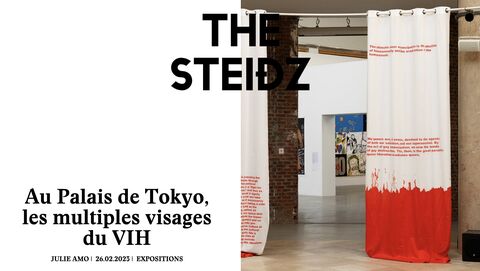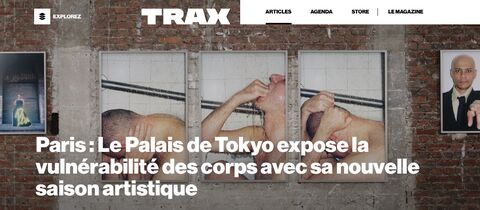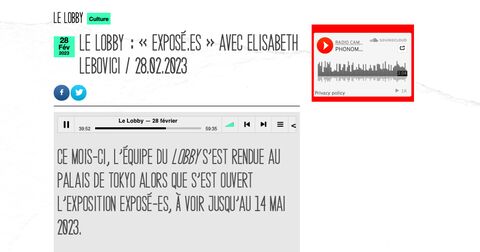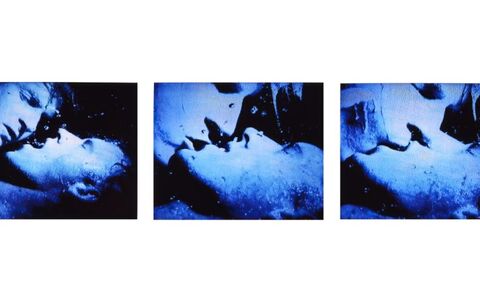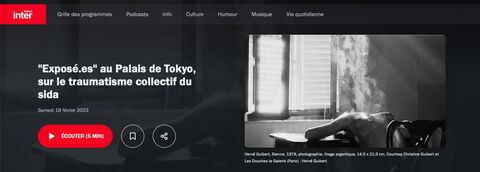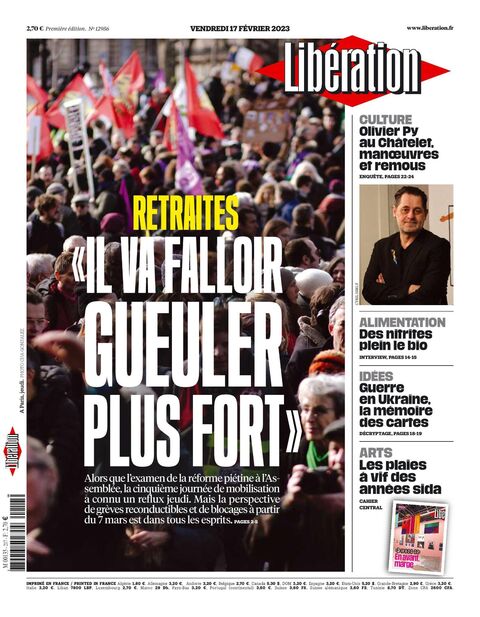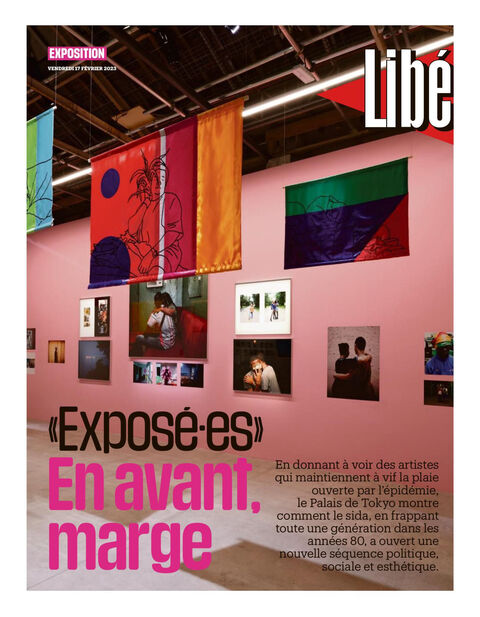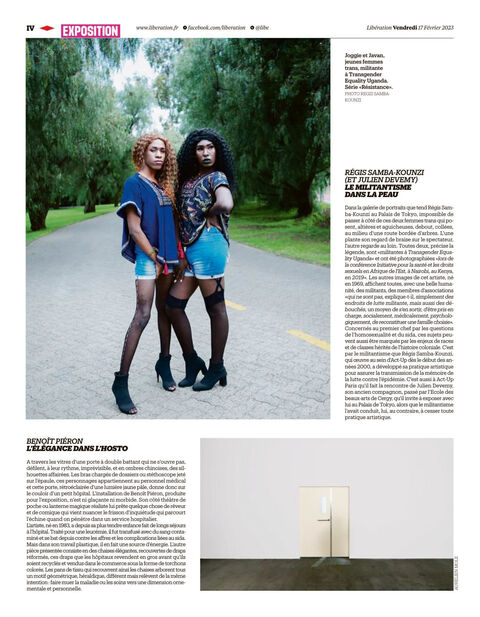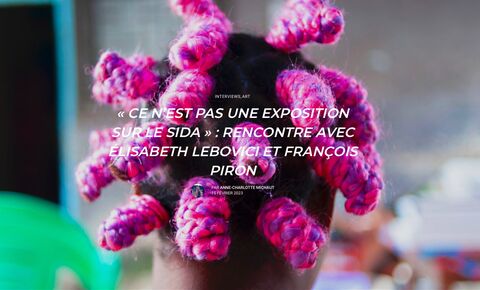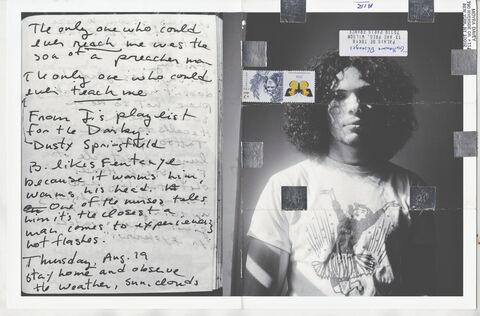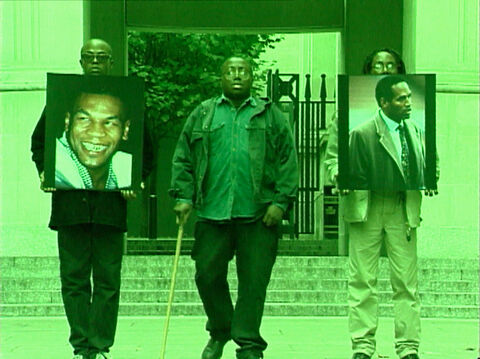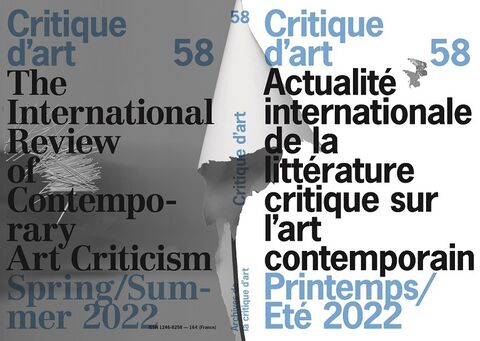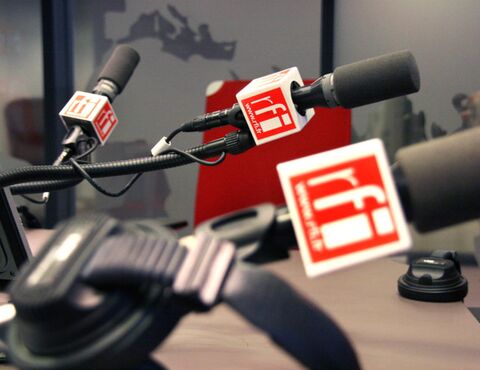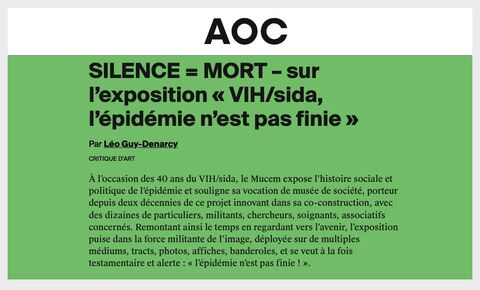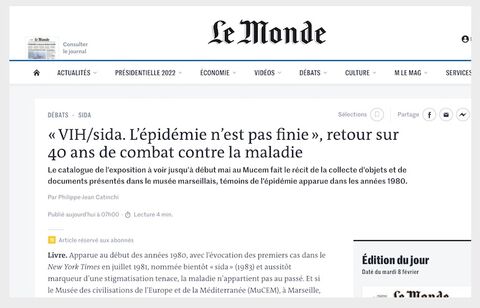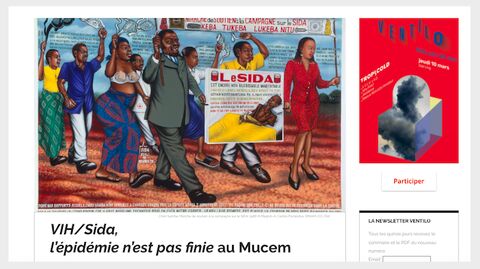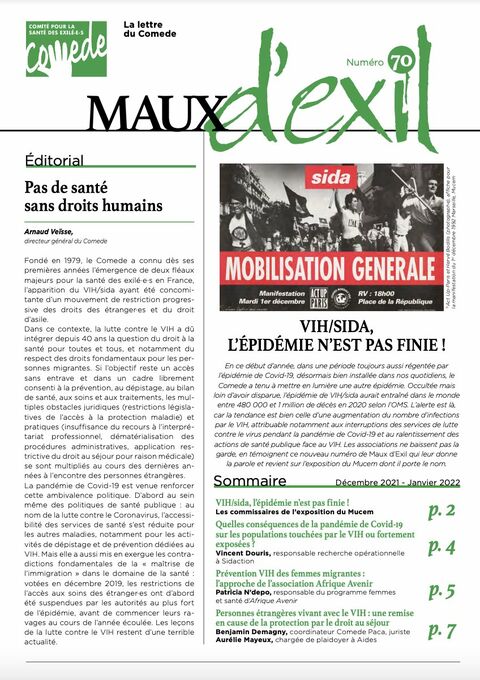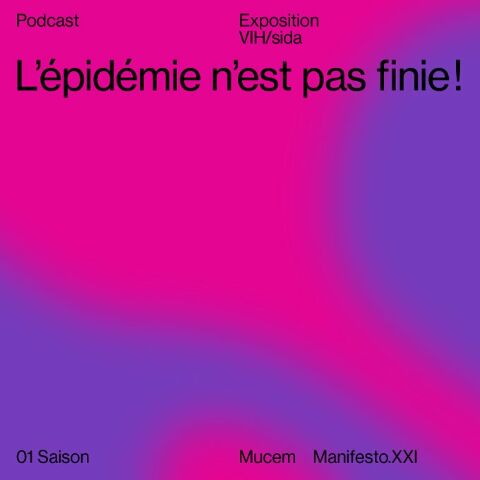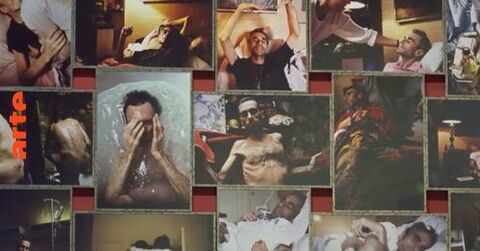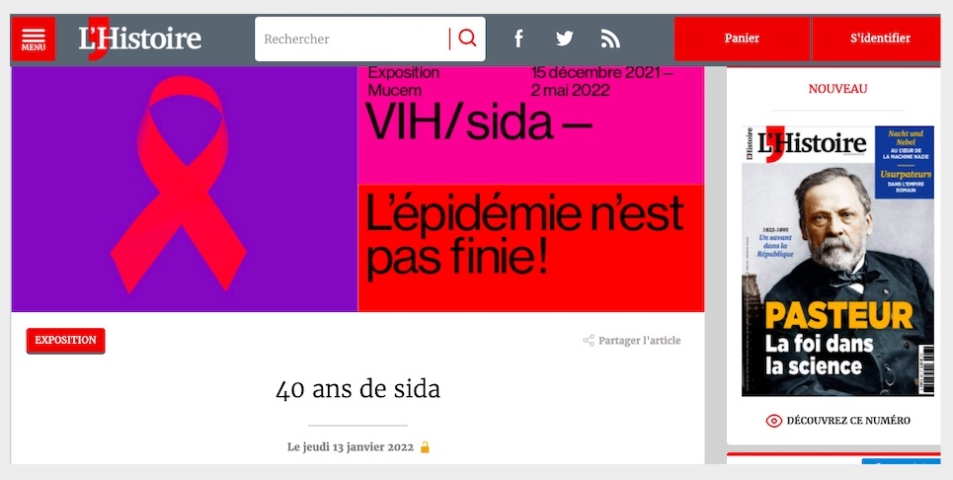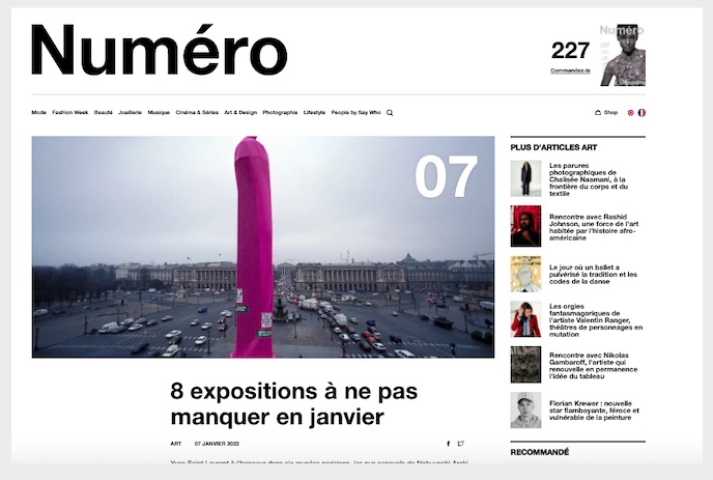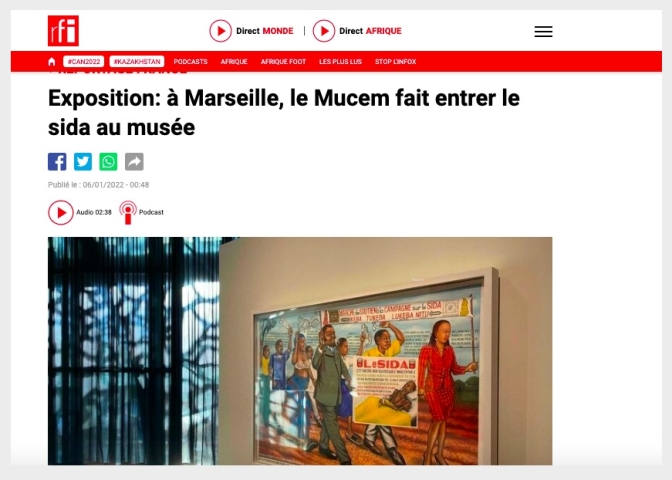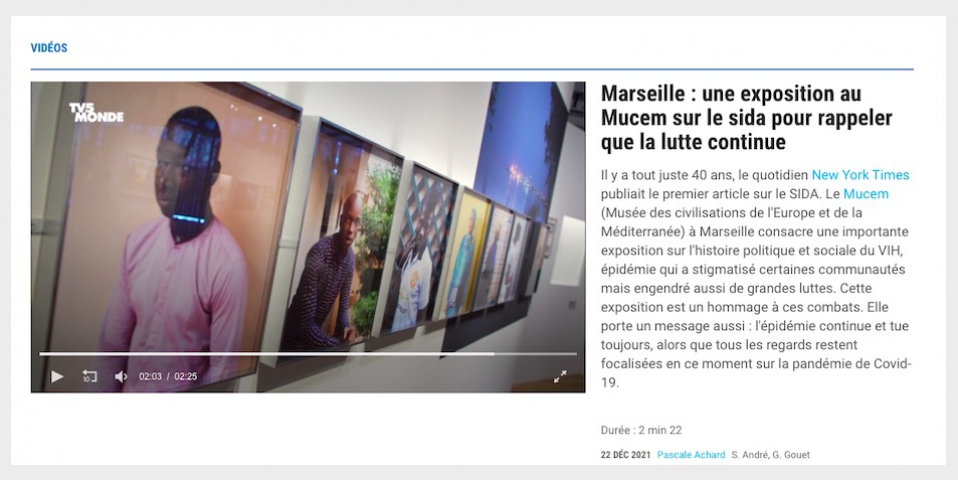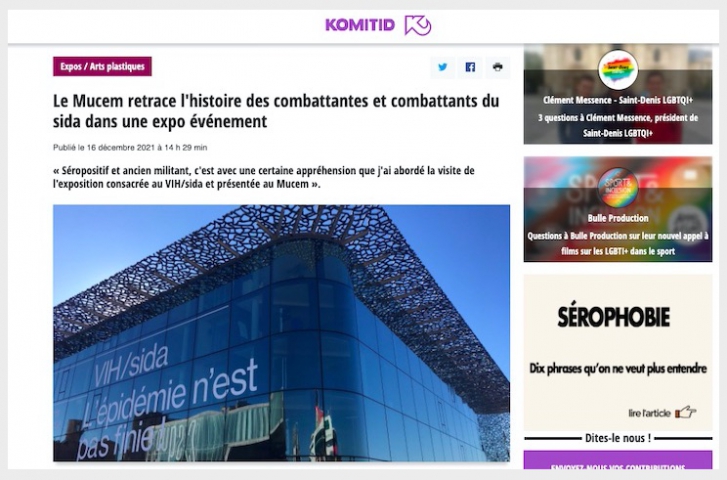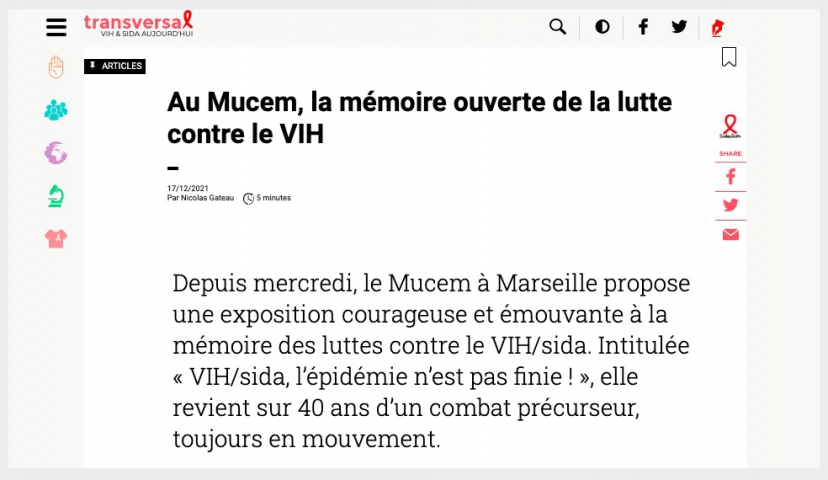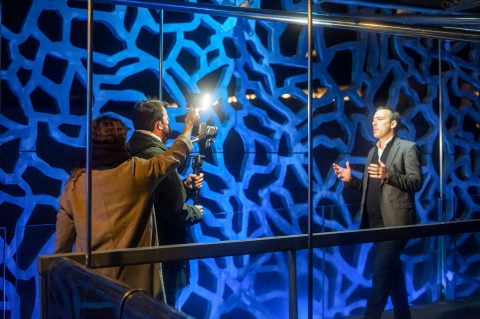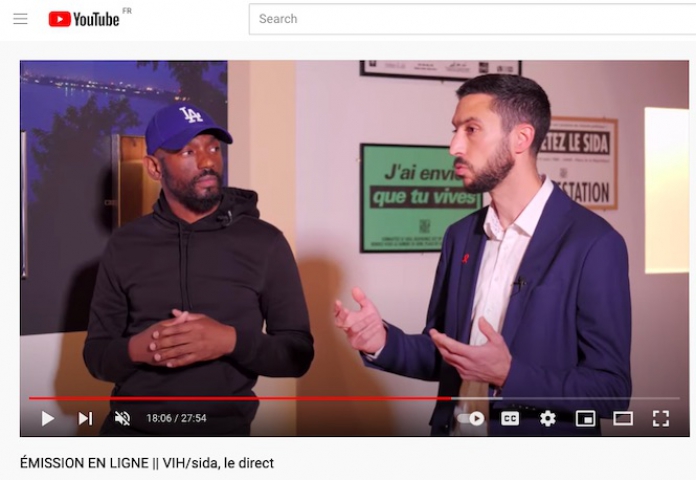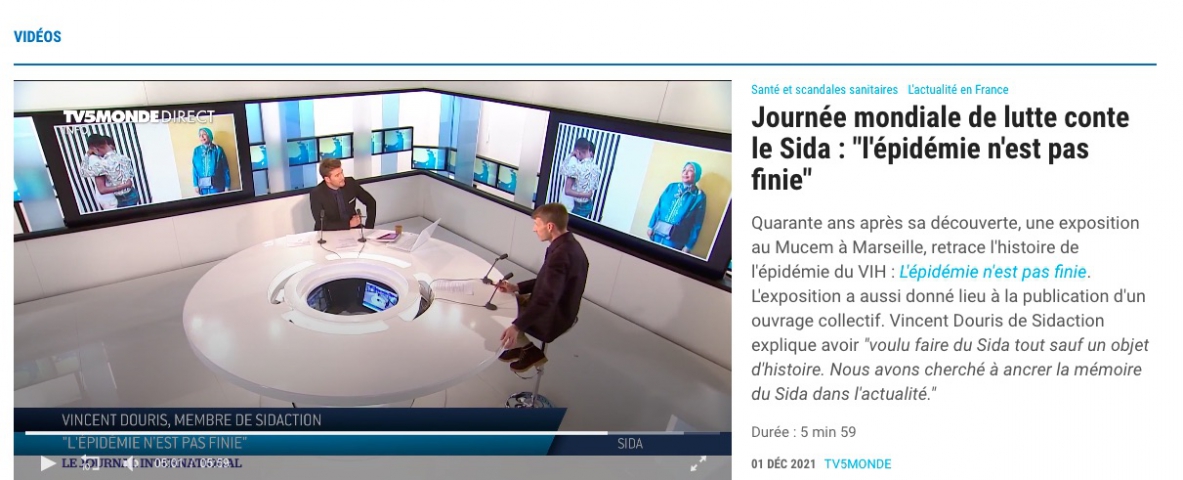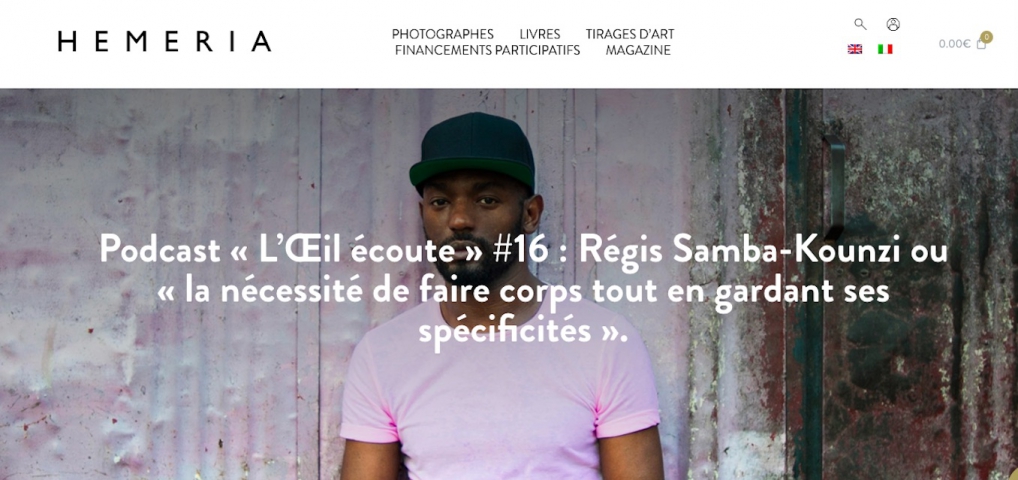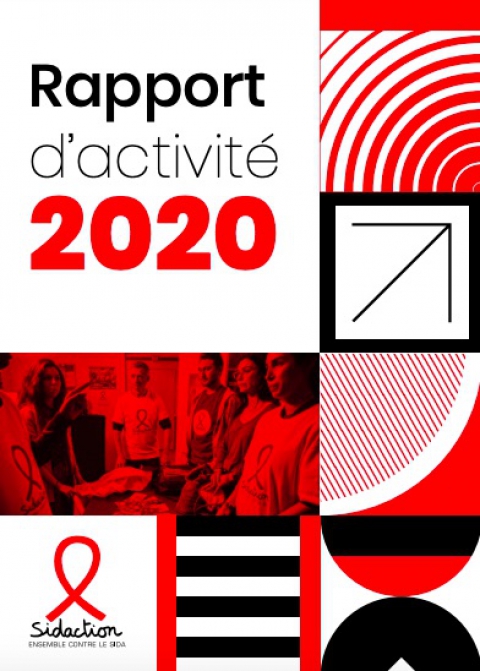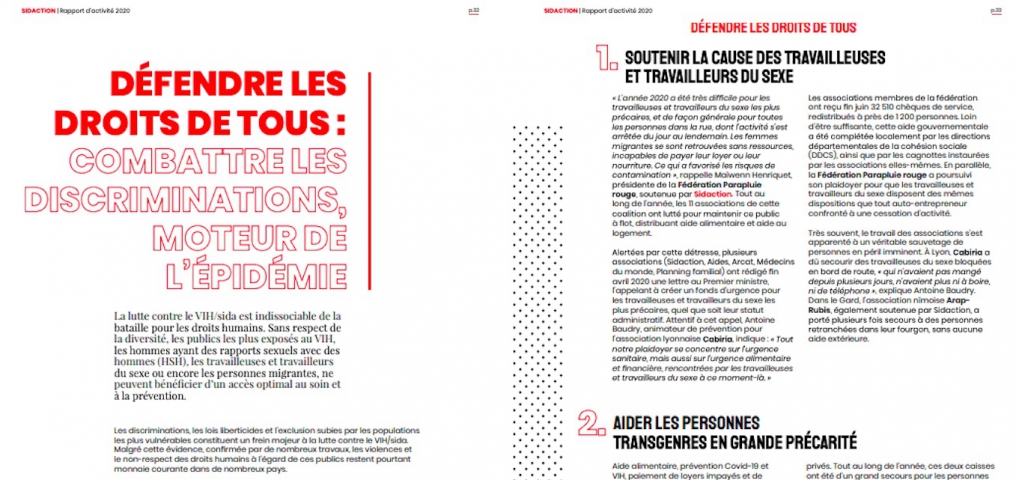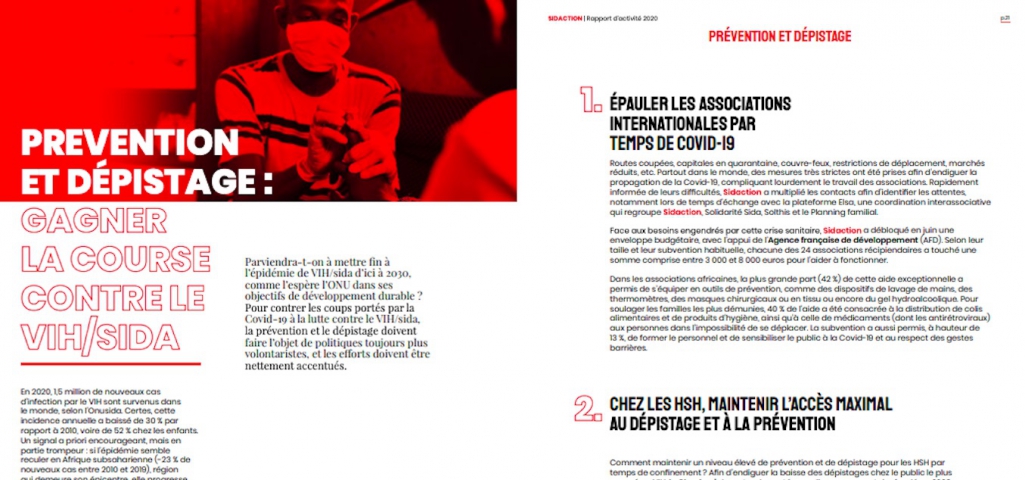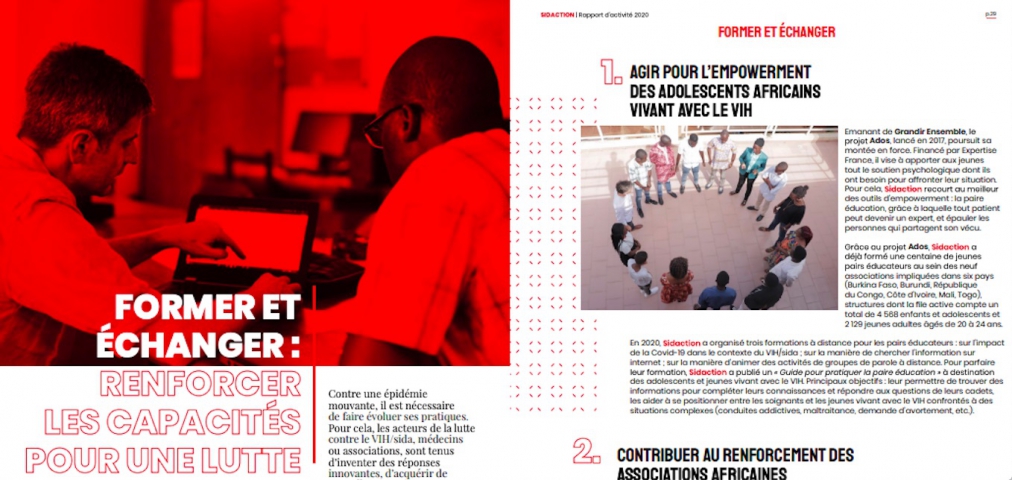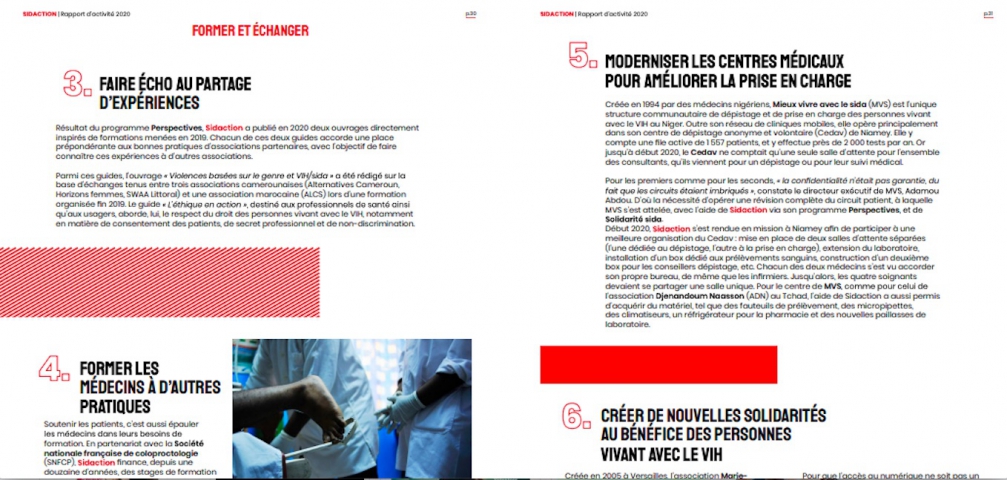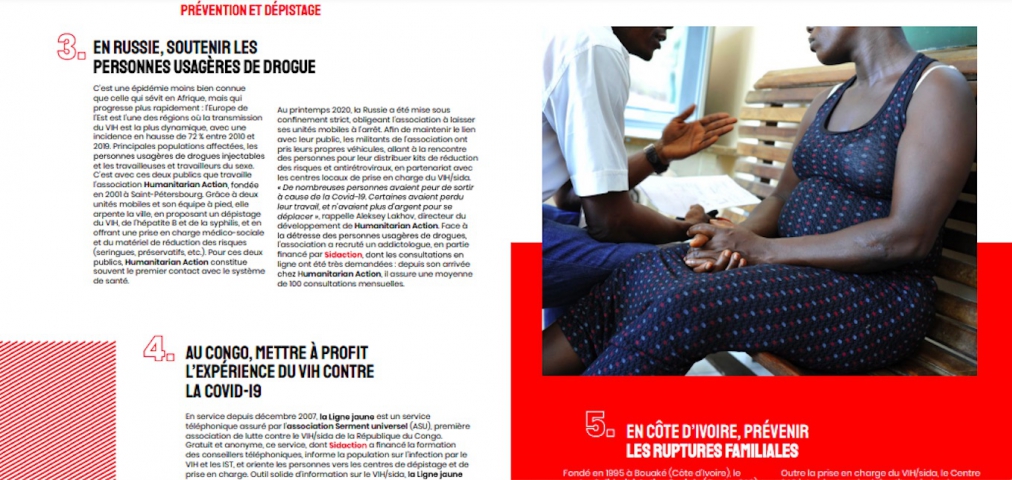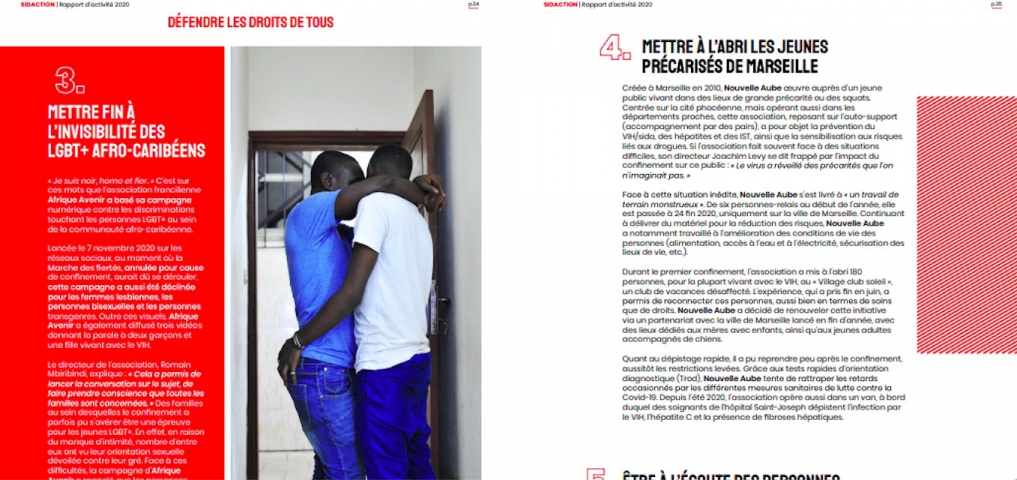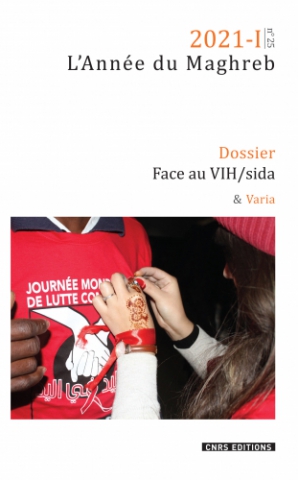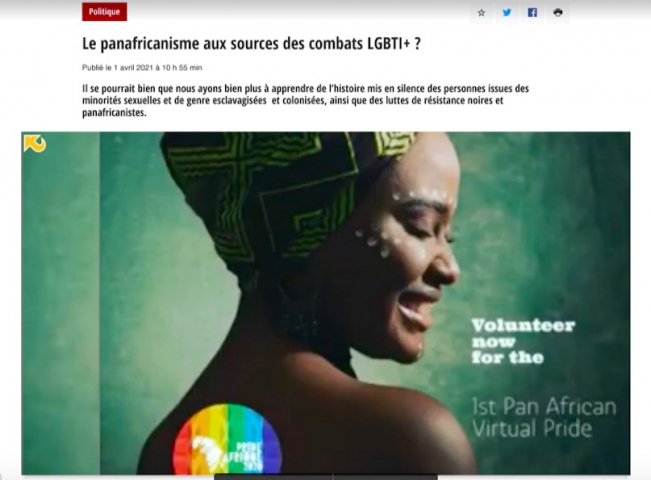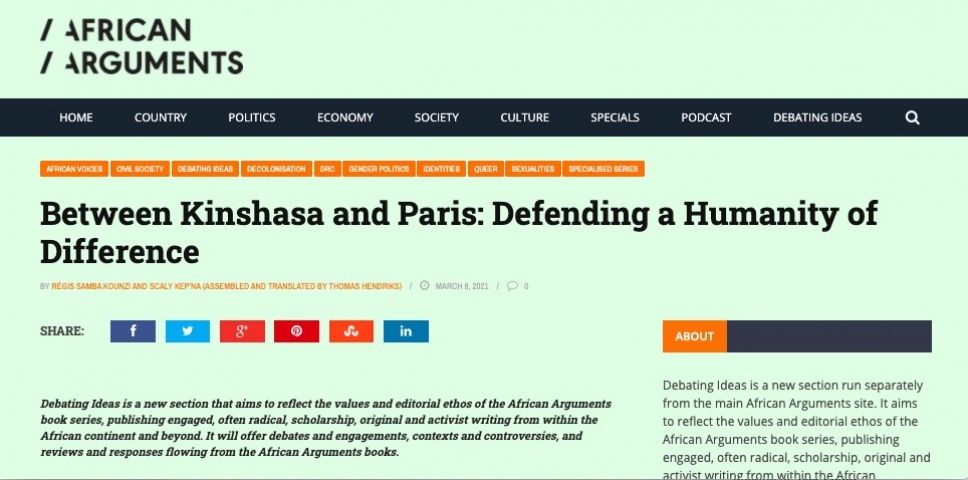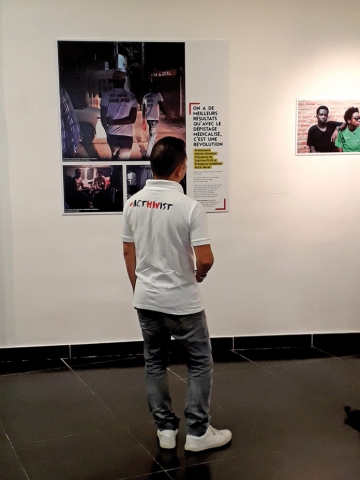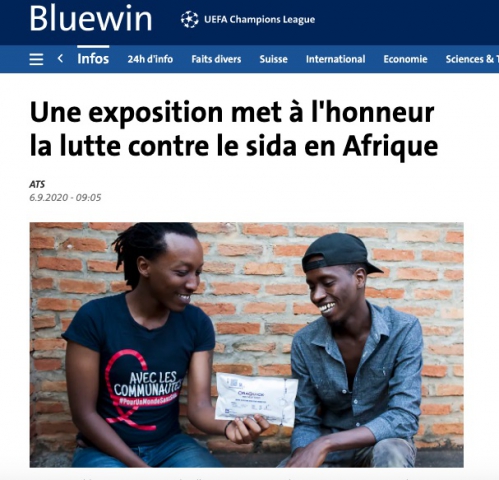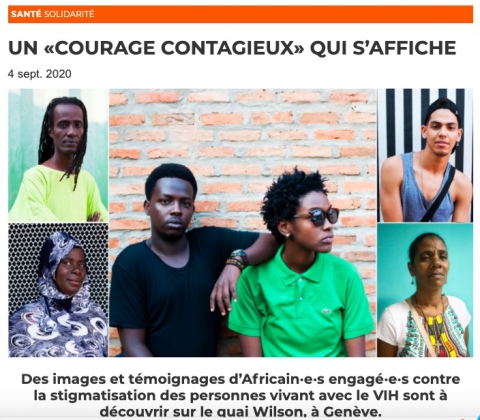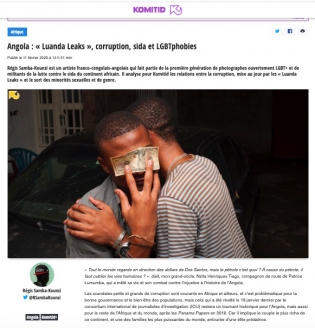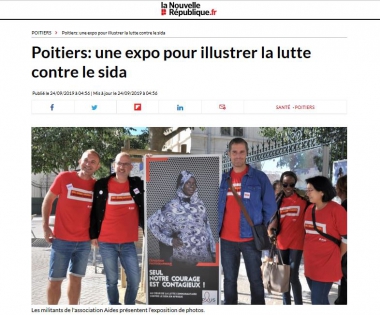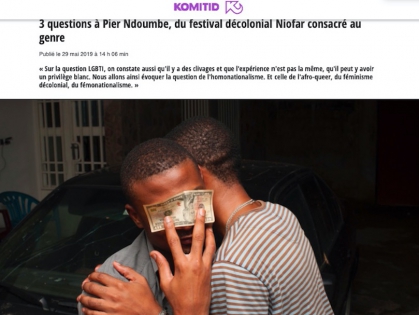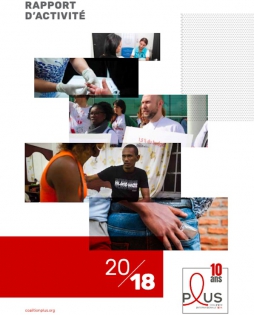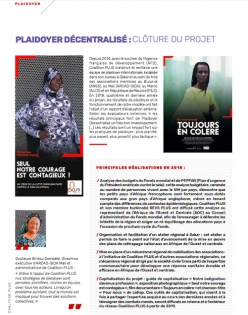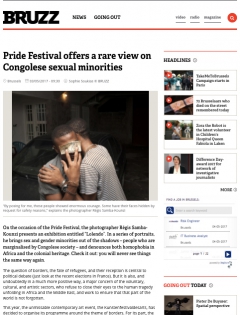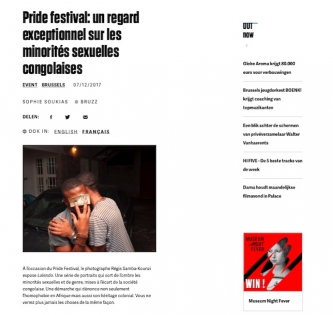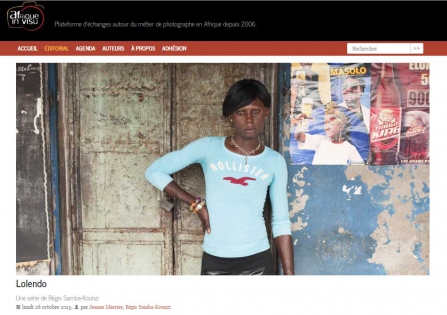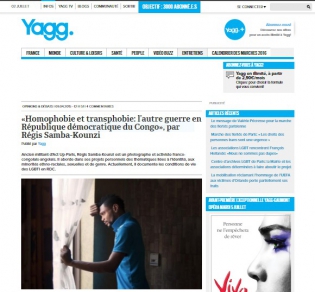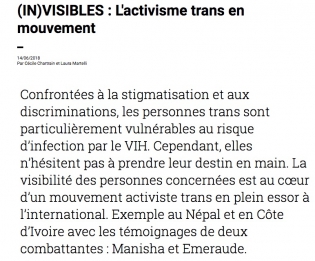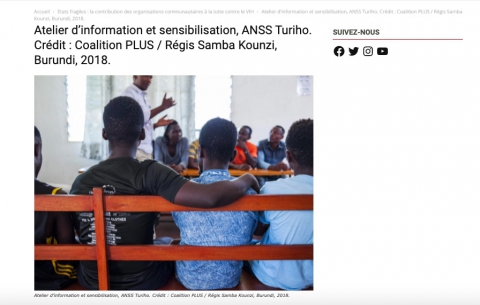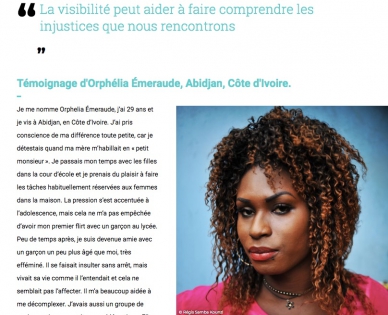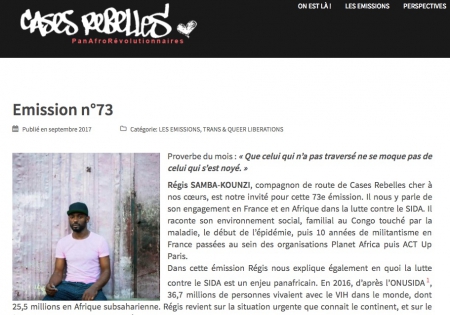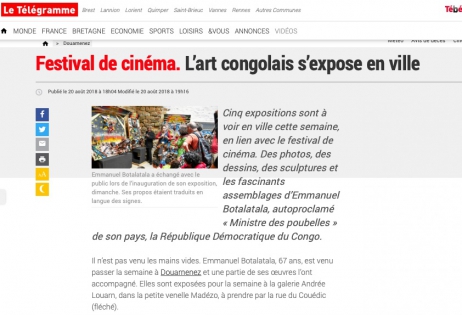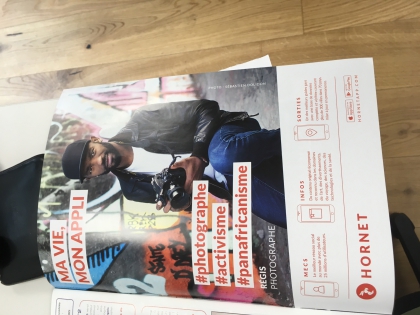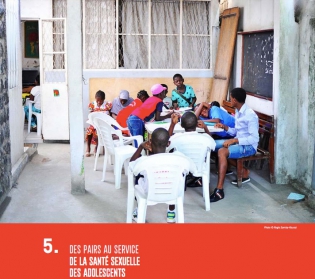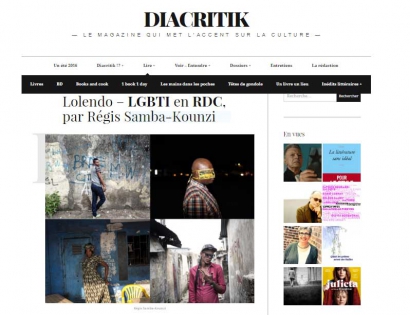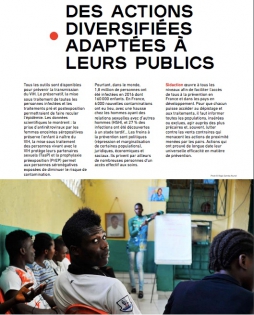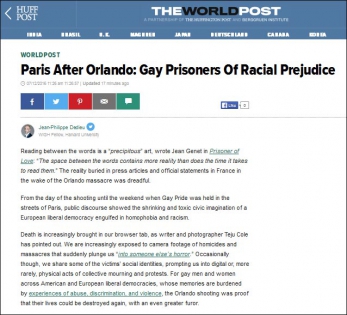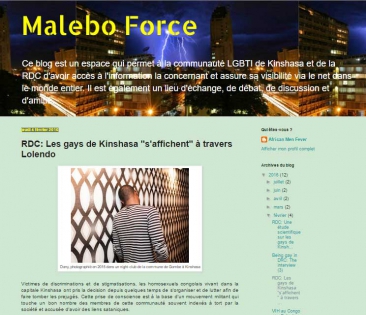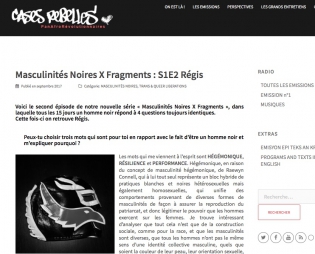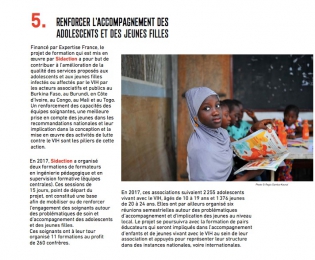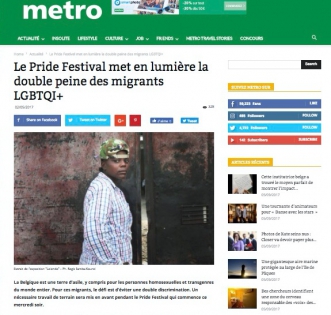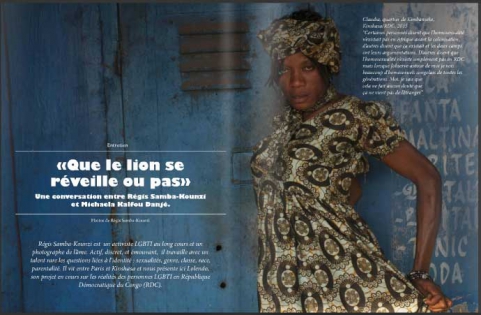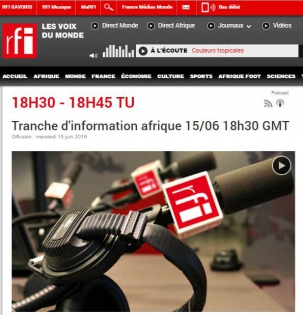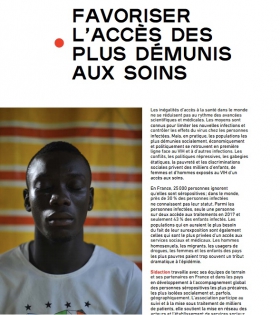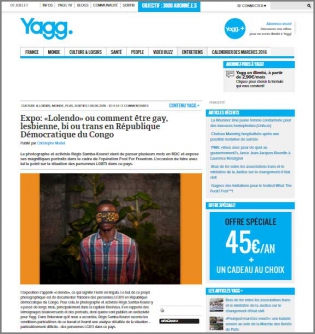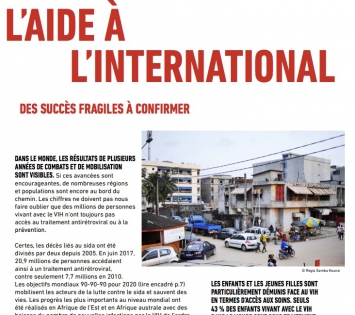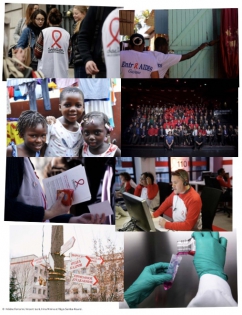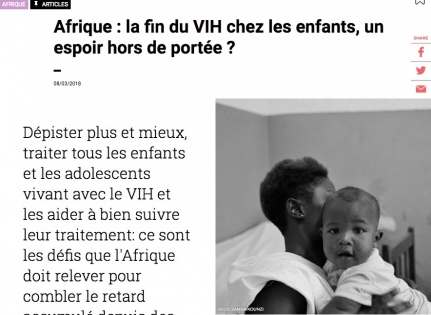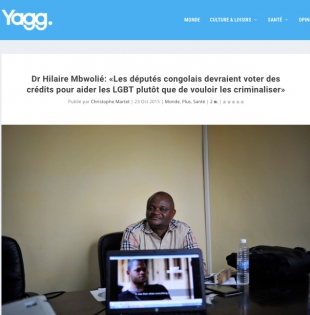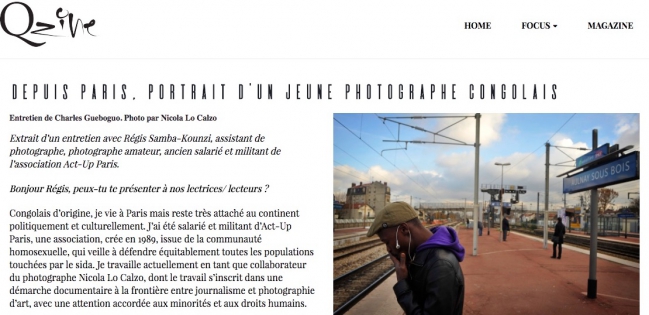press
Angola: "Luanda Leaks", corruption, AIDS and LGBT-phobia
Published on February 11, 2020
Régis Samba-Kounzi is a French-Congolese-Angolan artist who is part of the first generation of openly LGBT+ photographers and AIDS activists on the African continent. For Komitid, he analyzes the relationship between corruption, which was exposed by the "Luanda Leaks" scandal, and the fate of sexual and gender minorities.
"Everyone is looking at Dos Santos' dollars, but what is oil? Because of oil, we have to forget about human lives?" said my great-uncle, Nzita Henriques Tiago, a fellow traveler of Patrice Lumumba who intertwined his life and his fight against injustice with the history of Angola.
Small and large corruption scandals are common in Africa and elsewhere. And this is problematic for good governance and the well-being of the people. But the scandal revealed on January 19 by the International Consortium of Investigative Journalists (ICIJ) will remain a historic turning point for Angola, and also for the rest of Africa and the world after the Panama Papers scandal in 2016. It involves the richest couple on the continent, and one of the most powerful families in the world, who are surrounded by a predatory elite.
The story of this umpteenth corruption case, under the name "Luanda Leaks", was known to everyone for years, to this point where the notion of presumption of innocence has no meaning. The evidence is overwhelming. These revelations could have been transformed by the accused into conspiracy, jealousy, or political vengeance, if not were not for the seriousness of these international journalists and the unimaginable determination of the Portuguese whistleblower Rui Pinto, who justified his action in the name of the interest of the robbed peoples. In this article, we will also analyze the consequences of this corruption, especially on vulnerable people, including LGBT+ populations.
There is hypocrisy at all levels, in the North and in the South. "African corruption" is only African in terms of its victims, as activist and researcher Rafael Marques de Morais puts it. The oppressed Angolan people, for 500 years, have suffered the consequences of colonial domination and after independence, of the shared interests of the Angolan and Portuguese elites. This scandal reminds us of this and brings to light the complicity of Western facilitators – a new form of neocolonialism.
International, African and Western actors, whether institutions or individuals, have participated in, facilitated, given credibility to and optimized offshore activities that plunder public funds with voracity and impunity. "Luanda Leaks is a major case of international corruption," says Rafael Marques de Morais. "It was the whole world that projected Isabel dos Santos as the richest and most successful businesswoman in Africa when she was embezzling funds." According to the ICIJ, the leaked documents show how "Western financial firms, lawyers, accountants, government officials and management, consulting and auditing firms helped hide assets from tax authorities." Once caught, some of them flatly apologized. "When we look at some of the signs that were there, we should have picked them up earlier, and that was our mistake," Bob Moritz, global chairman of auditing and consulting firm PwC, told the Guardian. They should all be held accountable in court.
"Society has become more intolerant of corruption, lack of transparency and tax evasion," said Portuguese economy minister Pedro Siza Vieira. It should be noted, however, that society, wherever it is in the world, has not become more intolerant. It has always been radically intolerant of corruption. What has changed is access to information and the evidence disclosed by the hackers, who should be congratulated and not imprisoned, which gives legitimacy to the calls for justice. The information they provide us with today is essential. Without it, there would never be any prosecutions or trials, as the system protects itself and was designed to protect those who commit white-collar crime. Today, the Portuguese authorities, for example, are more concerned about the damage to the international image of Portuguese companies and than they are about the human consequences of such corruption. They must provide us with proof of concrete and effective action to put a definitive end to corruption.
Let me say at the outset that I have no hatred for Sindika Dokolo, a Congolese-born businessman and art collector, nor for his wife, Isabel Dos Santos, a businesswoman and daughter of Angola's former president José Eduardo Dos Santos. I believe that their lives are not just about corruption. If I speak out, it is to make another point of view heard and to participate in the fight, alongside my people, against an oppressive global system – because corruption, like AIDS, homophobia and transphobia, has the same origin and is a global scourge to be eliminated. How can we talk about corruption without talking about its concrete effects, its consequences on the most fragile populations and on people's imaginations?
Same social and geographical origins, but opposite paths
I share with Sindika Dokolo and Isabel Dos Santos, the same social origins, the same generation and the same countries, Congo-Kinshasa/Brazza and Angola. My father, André-Bernard Samba was a famous journalist and editorial writer. My younger sister is the daughter of General Yhombi-Opango, with whom my mother lived for 12 years. Forty-one years ago, on February 5, 1979, my former step-father, head of state of the People's Republic of Congo, was deposed due to corruption and personal enrichment. It is because I was born and raised in the heart of this wealthy and corrupt social class that I know that the situation cannot continue like this. We cannot promote the constant enrichment of a small part of the people without any distribution of wealth. This is why I have chosen to build my life differently, by committing myself in a selfless way for the general interest and for Africa.
The AIDS disaster
While the former presidential family and the Angolan elite were getting rich – José Eduardo Dos Santos ruled for almost 40 years, from 1979 to 2017 – the number of AIDS cases exploded. Each year, more adults and children are infected with HIV in Angola. For the year 2018, UNAIDS figures set the tone of a growing disaster: 330,000 people are living with HIV; the percentage of people living with HIV among adults (15-49 years old) was 2%; 28,000 people were newly infected with HIV; and 14,000 people died of an AIDS-related illness. Since 2010, the number of AIDS-related deaths has increased by 33%, from 10,000 to 14,000. The number of new HIV infections has also increased, from 26,000 to 28,000 during the same period. Among the population, those designated as key (and in particular women, sex workers and men who have sex with men) are the most vulnerable, fragile and affected by the disease. They face situations that other citizens do not, such as the experience of stigmatization because of their social statuses or identities. Those who are treated with contempt and indifference: sex workers, drug users, prisoners and sexual and gender minorities, whose living conditions are an untouched subject.
Their social, economic and health situations are worrying. It is in this context that HIV/AIDS is methodically wreaking havoc through the imperturbable mechanics of silence and invisibility, the same modus operandi as the corruption that is slowly but surely eating away at the country's economy. The capital flight due to corruption does not allow us to meet the vital needs of prevention or caring of the sick. The stakes of this corruption, which weakens the health system in particular, result in the abandonment of entire social groups, and this raises questions about the value placed on human lives.
The political will of the new regime
One bit of satisfaction, however, has come after years of struggle: on January 23, 2019, the government of President Joao Lourenço removed from Angola's penal code an article condemning "unnatural vices" that was introduced by the Portuguese during the colonial era. This article had been widely interpreted as a ban on same-sex sexual relationships. Under Dos Santos in 2001, the Angolan government refused to receive the new Israeli ambassador, Isi Yanouka, on the grounds that he was gay. The situation for the country's sexual and gender minorities was difficult, even though trans singer Titica, an icon of the community, had the whole country dancing. In June 2019, the Angolan justice ministry legalized an association defending the rights of LGBT+ people for the first time in the country's history. We are only at the beginning of a change that is meant to be revolutionary, but already some admit that the new regime's action against corruption is beneficial and that it contrasts radically with the record of the old regime, which was destroying the country. Where the old regime favored a few people, the new one seems to be taking the side of the people – well, at least for more inclusion – and Angolans used to and tired of the impunity of the elites are already happy about it. Under the presidency of former president José Eduardo Dos Santos, the judiciary was under the government's thumb, and current president Joao Lourenço maintains that it will now be independent.
Extreme poverty
The former regime failed to address poverty and development, despite the country's oil wealth. Many Angolans still live in extreme poverty. The country has the highest infant mortality rate in the world. Even in the middle of the capital, there are neighborhoods without wastewater disposal. Health services, which are often only offered by private clinics, are too expensive for many people. The education system is also underdeveloped. It is not only Angolans who have high expectations of their authorities. What is happening in this regional power in Central Africa is being watched by all the populations of the sub-region and the continent, who very much hope that head of state Lourenço will set an example that will be emulated, so that they in turn will have a chance for change – even though some observers suspect him of acting only to remain in power.
The protective rights for sexual and gender minorities that guarantee our individual freedoms, as well as his action in the fight against AIDS, an issue handled by his wife, Ana Dias, are reasons for hope so far. The challenge is massive. It will be difficult to end a system that has lasted for 40 years. To restore trust, it will take an iron determination to achieve a radical change of mentalities and decolonize the imagination.
Another world is possible...
The fight against corruption, AIDS, homophobia and transphobia is a choice for society. It is about the meaning and value of life. The pan-Africanism we want is an open and inclusive movement that protects all the children of the continent regardless of their sexual orientation, gender identity, class, race and serology, in line with the definition of the political manifesto of Steve Biko's Black Consciousness Movement. In it, he stated that Black people are defined as those who are politically, economically and socially discriminated against as a group in society, legally or traditionally, and who identify themselves as a united force in the struggle to achieve their aspirations. This definition illustrates a series of elements for us:
1) Being Black is not a matter of pigmentation; being Black is a reflection of a disposition.
2) By the simple fact of defining yourself as Black, you commit yourself to a path towards emancipation, you commit yourself to fight against all the forces that try to make your condition as Black the mark that designates you as a subaltern being.
To conclude, Sindika Dokolo said: "I prefer that the wealth of the continent goes to a corrupt Black man rather than to a neocolonialist White man.” I respond to him that we want neither. All the children of Angola must be able to live off the wealth of their country, and every African, including LGBT+ people, must be able to live with dignity off the wealth of their continent. This is a major ethical, social, economic and political priority.
https://www.komitid.fr/20...s-samba-kounzi/
Published on February 11, 2020
Régis Samba-Kounzi is a French-Congolese-Angolan artist who is part of the first generation of openly LGBT+ photographers and AIDS activists on the African continent. For Komitid, he analyzes the relationship between corruption, which was exposed by the "Luanda Leaks" scandal, and the fate of sexual and gender minorities.
"Everyone is looking at Dos Santos' dollars, but what is oil? Because of oil, we have to forget about human lives?" said my great-uncle, Nzita Henriques Tiago, a fellow traveler of Patrice Lumumba who intertwined his life and his fight against injustice with the history of Angola.
Small and large corruption scandals are common in Africa and elsewhere. And this is problematic for good governance and the well-being of the people. But the scandal revealed on January 19 by the International Consortium of Investigative Journalists (ICIJ) will remain a historic turning point for Angola, and also for the rest of Africa and the world after the Panama Papers scandal in 2016. It involves the richest couple on the continent, and one of the most powerful families in the world, who are surrounded by a predatory elite.
The story of this umpteenth corruption case, under the name "Luanda Leaks", was known to everyone for years, to this point where the notion of presumption of innocence has no meaning. The evidence is overwhelming. These revelations could have been transformed by the accused into conspiracy, jealousy, or political vengeance, if not were not for the seriousness of these international journalists and the unimaginable determination of the Portuguese whistleblower Rui Pinto, who justified his action in the name of the interest of the robbed peoples. In this article, we will also analyze the consequences of this corruption, especially on vulnerable people, including LGBT+ populations.
There is hypocrisy at all levels, in the North and in the South. "African corruption" is only African in terms of its victims, as activist and researcher Rafael Marques de Morais puts it. The oppressed Angolan people, for 500 years, have suffered the consequences of colonial domination and after independence, of the shared interests of the Angolan and Portuguese elites. This scandal reminds us of this and brings to light the complicity of Western facilitators – a new form of neocolonialism.
International, African and Western actors, whether institutions or individuals, have participated in, facilitated, given credibility to and optimized offshore activities that plunder public funds with voracity and impunity. "Luanda Leaks is a major case of international corruption," says Rafael Marques de Morais. "It was the whole world that projected Isabel dos Santos as the richest and most successful businesswoman in Africa when she was embezzling funds." According to the ICIJ, the leaked documents show how "Western financial firms, lawyers, accountants, government officials and management, consulting and auditing firms helped hide assets from tax authorities." Once caught, some of them flatly apologized. "When we look at some of the signs that were there, we should have picked them up earlier, and that was our mistake," Bob Moritz, global chairman of auditing and consulting firm PwC, told the Guardian. They should all be held accountable in court.
"Society has become more intolerant of corruption, lack of transparency and tax evasion," said Portuguese economy minister Pedro Siza Vieira. It should be noted, however, that society, wherever it is in the world, has not become more intolerant. It has always been radically intolerant of corruption. What has changed is access to information and the evidence disclosed by the hackers, who should be congratulated and not imprisoned, which gives legitimacy to the calls for justice. The information they provide us with today is essential. Without it, there would never be any prosecutions or trials, as the system protects itself and was designed to protect those who commit white-collar crime. Today, the Portuguese authorities, for example, are more concerned about the damage to the international image of Portuguese companies and than they are about the human consequences of such corruption. They must provide us with proof of concrete and effective action to put a definitive end to corruption.
Let me say at the outset that I have no hatred for Sindika Dokolo, a Congolese-born businessman and art collector, nor for his wife, Isabel Dos Santos, a businesswoman and daughter of Angola's former president José Eduardo Dos Santos. I believe that their lives are not just about corruption. If I speak out, it is to make another point of view heard and to participate in the fight, alongside my people, against an oppressive global system – because corruption, like AIDS, homophobia and transphobia, has the same origin and is a global scourge to be eliminated. How can we talk about corruption without talking about its concrete effects, its consequences on the most fragile populations and on people's imaginations?
Same social and geographical origins, but opposite paths
I share with Sindika Dokolo and Isabel Dos Santos, the same social origins, the same generation and the same countries, Congo-Kinshasa/Brazza and Angola. My father, André-Bernard Samba was a famous journalist and editorial writer. My younger sister is the daughter of General Yhombi-Opango, with whom my mother lived for 12 years. Forty-one years ago, on February 5, 1979, my former step-father, head of state of the People's Republic of Congo, was deposed due to corruption and personal enrichment. It is because I was born and raised in the heart of this wealthy and corrupt social class that I know that the situation cannot continue like this. We cannot promote the constant enrichment of a small part of the people without any distribution of wealth. This is why I have chosen to build my life differently, by committing myself in a selfless way for the general interest and for Africa.
The AIDS disaster
While the former presidential family and the Angolan elite were getting rich – José Eduardo Dos Santos ruled for almost 40 years, from 1979 to 2017 – the number of AIDS cases exploded. Each year, more adults and children are infected with HIV in Angola. For the year 2018, UNAIDS figures set the tone of a growing disaster: 330,000 people are living with HIV; the percentage of people living with HIV among adults (15-49 years old) was 2%; 28,000 people were newly infected with HIV; and 14,000 people died of an AIDS-related illness. Since 2010, the number of AIDS-related deaths has increased by 33%, from 10,000 to 14,000. The number of new HIV infections has also increased, from 26,000 to 28,000 during the same period. Among the population, those designated as key (and in particular women, sex workers and men who have sex with men) are the most vulnerable, fragile and affected by the disease. They face situations that other citizens do not, such as the experience of stigmatization because of their social statuses or identities. Those who are treated with contempt and indifference: sex workers, drug users, prisoners and sexual and gender minorities, whose living conditions are an untouched subject.
Their social, economic and health situations are worrying. It is in this context that HIV/AIDS is methodically wreaking havoc through the imperturbable mechanics of silence and invisibility, the same modus operandi as the corruption that is slowly but surely eating away at the country's economy. The capital flight due to corruption does not allow us to meet the vital needs of prevention or caring of the sick. The stakes of this corruption, which weakens the health system in particular, result in the abandonment of entire social groups, and this raises questions about the value placed on human lives.
The political will of the new regime
One bit of satisfaction, however, has come after years of struggle: on January 23, 2019, the government of President Joao Lourenço removed from Angola's penal code an article condemning "unnatural vices" that was introduced by the Portuguese during the colonial era. This article had been widely interpreted as a ban on same-sex sexual relationships. Under Dos Santos in 2001, the Angolan government refused to receive the new Israeli ambassador, Isi Yanouka, on the grounds that he was gay. The situation for the country's sexual and gender minorities was difficult, even though trans singer Titica, an icon of the community, had the whole country dancing. In June 2019, the Angolan justice ministry legalized an association defending the rights of LGBT+ people for the first time in the country's history. We are only at the beginning of a change that is meant to be revolutionary, but already some admit that the new regime's action against corruption is beneficial and that it contrasts radically with the record of the old regime, which was destroying the country. Where the old regime favored a few people, the new one seems to be taking the side of the people – well, at least for more inclusion – and Angolans used to and tired of the impunity of the elites are already happy about it. Under the presidency of former president José Eduardo Dos Santos, the judiciary was under the government's thumb, and current president Joao Lourenço maintains that it will now be independent.
Extreme poverty
The former regime failed to address poverty and development, despite the country's oil wealth. Many Angolans still live in extreme poverty. The country has the highest infant mortality rate in the world. Even in the middle of the capital, there are neighborhoods without wastewater disposal. Health services, which are often only offered by private clinics, are too expensive for many people. The education system is also underdeveloped. It is not only Angolans who have high expectations of their authorities. What is happening in this regional power in Central Africa is being watched by all the populations of the sub-region and the continent, who very much hope that head of state Lourenço will set an example that will be emulated, so that they in turn will have a chance for change – even though some observers suspect him of acting only to remain in power.
The protective rights for sexual and gender minorities that guarantee our individual freedoms, as well as his action in the fight against AIDS, an issue handled by his wife, Ana Dias, are reasons for hope so far. The challenge is massive. It will be difficult to end a system that has lasted for 40 years. To restore trust, it will take an iron determination to achieve a radical change of mentalities and decolonize the imagination.
Another world is possible...
The fight against corruption, AIDS, homophobia and transphobia is a choice for society. It is about the meaning and value of life. The pan-Africanism we want is an open and inclusive movement that protects all the children of the continent regardless of their sexual orientation, gender identity, class, race and serology, in line with the definition of the political manifesto of Steve Biko's Black Consciousness Movement. In it, he stated that Black people are defined as those who are politically, economically and socially discriminated against as a group in society, legally or traditionally, and who identify themselves as a united force in the struggle to achieve their aspirations. This definition illustrates a series of elements for us:
1) Being Black is not a matter of pigmentation; being Black is a reflection of a disposition.
2) By the simple fact of defining yourself as Black, you commit yourself to a path towards emancipation, you commit yourself to fight against all the forces that try to make your condition as Black the mark that designates you as a subaltern being.
To conclude, Sindika Dokolo said: "I prefer that the wealth of the continent goes to a corrupt Black man rather than to a neocolonialist White man.” I respond to him that we want neither. All the children of Angola must be able to live off the wealth of their country, and every African, including LGBT+ people, must be able to live with dignity off the wealth of their continent. This is a major ethical, social, economic and political priority.
https://www.komitid.fr/20...s-samba-kounzi/
